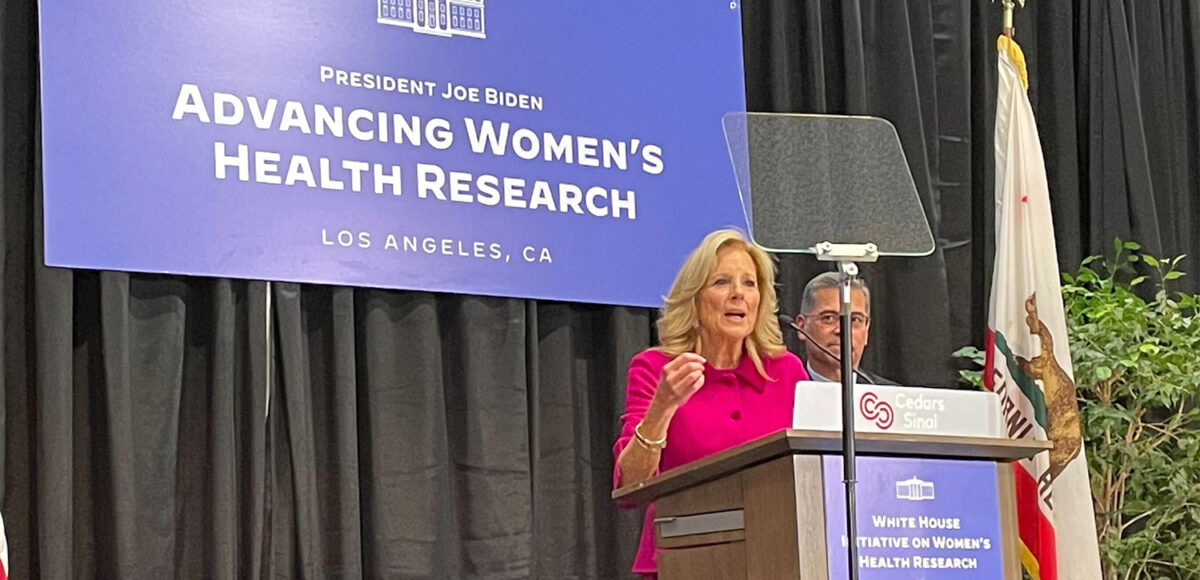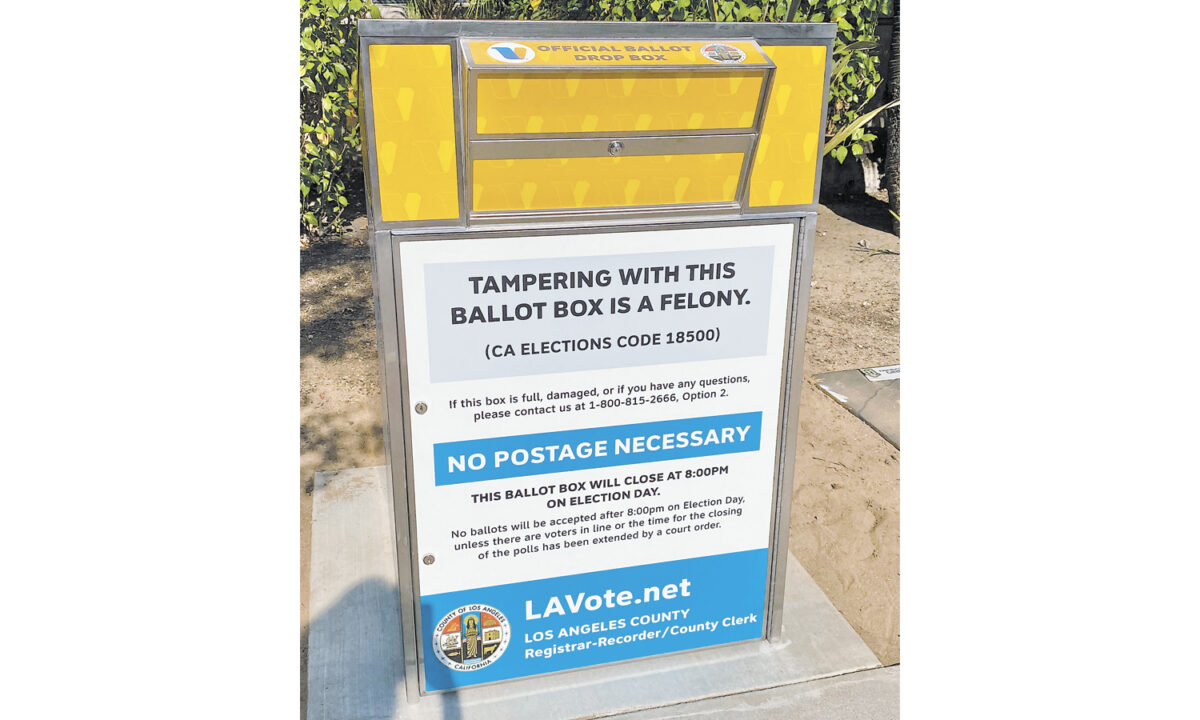First Lady Dr. Jill Biden has been working to improve women’s health care long before moving into the White House. So, when former California First Lady Maria Shriver approached Biden earlier this year to help close the research gaps in women’s health, Biden immediately jumped on board, she said.
On Dec. 8, Biden traveled to Cedars-Sinai Medical Center to announce the new White House initiative on Women’s Health Research, which is aimed at overhauling the country’s approach to funding and conducting women’s health research to find solutions to the most pressing and understudied women’s health issues, Biden said.
“Research on women’s health has been underfunded for decades, and many conditions that mostly or only affect women … have received limited attention,” Biden said. “Because of these gaps, we understand far too little about these conditions and how to help the millions of women who struggle with them. And these gaps are even greater for communities that have historically been excluded from research … including women of color and women with disabilities.”
To close these gaps, the White House has instructed federal health agencies to review their women’s health programs and make policy recommendations to the White House by Dec. 28, Biden said. She added that Dr. Carolyn Mazure, a women’s health researcher at the Yale School of Medicine, is leading the initiative.
Biden announced the initiative during a press conference with Shriver and United States Health and Human Services Secretary Xavier Becerra, following a tour of Cedars-Sinai facilities including the Barbara Streisand Women’s Heart Center and the Center for Research in Women’s Health Sciences.
Shriver said that disproportionately poor health outcomes amongst women, and especially amongst women of color, are a direct result of decades of women’s exclusion from medical research.
“The President and First Lady understand that we cannot treat women medically if we do not have the answers that only research can provide,” Shriver said. “Answers as to why women make up two-thirds of all Alzheimer’s cases, or two-thirds of the cases of MS or 80% of autoimmune diseases. Answers as to why Black and brown women are two to three times more likely to die of pregnancy-related complications than white women. The bottom line is that we can’t treat women or prevent them from being sick in the first place if we have not invested in funding the necessary research.”

Photos by Joey Waldinger
According to Becerra, the initiative is part of a pivot across the medical profession toward personalized care for each patient. However, he acknowledged that medical care for women, even when it is tailored to a specific patient, is limited by a lack of research.
“You can ask the question, ‘OK, I’m going to give you my personal information, and that’s going to really help [guide the treatment]. But what was that basic research here that underlines the treatment you’re going to give me,’” Becerra said. “Who was in the clinical trials that helped you determine what that pill should contain, and how do you know you’ve calibrated it … to fit my needs?”
Various agencies have already begun compiling recommendations for the White House, and Becerra said the initiative will take a fresh look at issues unique to women, like menopause, as well as issues like cardiovascular disease that impact women differently than men.
“We intend to deliver on the recommendations … that will show concrete actions that we will take to advance women’s health research,” Becerra said.
In an interview with reporters, Becerra said the research will combat unequal health outcomes for Black and brown women by including a diverse pool of participants. Though he acknowledged that some Black and Brown women might be skeptical of new research, given the history of medical malpractice against those populations, he encouraged “Americans of all stripes” to participate.
“If you don’t, then people like you will have to depend on pills and medicines that are based on people that aren’t like you,” Becerra said.
While the initiative was not a direct response to the fall of Roe v. Wade, a Supreme Court ruling that protected access to abortion, the ensuing restrictions on reproductive health have highlighted the importance of protecting women’s health, Becerra added.
“What you’re seeing is now this confluence of interests to try to get us to where we should have been a long time ago when it comes to women’s health,” Becerra said.







